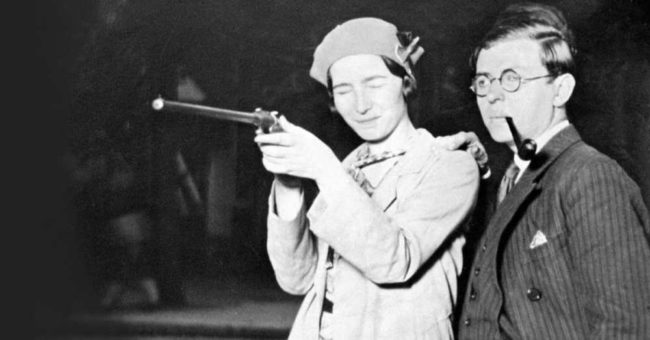We run our website the way we wished the whole internet worked: we provide high quality original content with no ads. We are funded solely by your direct support. Please consider supporting this project.

Can Life Have Meaning Without God?
Article by Dan Kent
King Sisyphus (“Siss-uh-fuss”) was a mythical king who enjoyed killing random travelers and starting wars. He killed for pleasure. He killed for profit. He killed for pride. When he died the gods showed him no mercy. The wicked king was condemned to spend eternity pushing a mighty rock up a hill. The hill was such that, whenever he managed to heave the rock to the top, the rock would immediately roll down the other side and Sisyphus was obliged to descend the hill and began pushing again, and again, forever.
The myth of Sisyphus is a haunting picture of a futile existence. When we really imagine the punishment (the shoulder pressed against the stone, the awkward footing, the windless heat, the sweat dripping in the eyes, the monotony of the endless task, the pointlessness of the accomplishment, and the total absence of reason for the challenge) we might feel a peculiar dread buzzing within us. It’s not merely dread born out of pity for Sisyphus. It’s dread for our own lives. We wonder if our own life might merely be a sad bunch of pointless tasks without any ultimate payoff for our toil.
If God does not exist, it has been argued, then life can have no ultimate meaning. Historically, the argument has gone along these lines: if humans are here only because of bio-chemical circumstance, then humans are accidents (oops!). We weren’t meant to be here. The universe did not require us, and it does not have rules for us, or a plan for us. The universe doesn’t even care about us. We are merely thrust into the machine of life and struggle to stay alive as long as we can. But eventually we die. And that is all.
Atheism seems to have two prominent denominations: existentialism and nihilism. Most atheists are existentialists and would deny that life without God is meaningless. But nihilists won’t deny it. In fact you’ll often find nihilists defending the meaninglessness of a godless life. These folks are not disillusioned goth teens getting all morose and forlorn with the black pants and the dark eye paints. We’re talking about pipe-puffing, bearded academics dwelling in the book stacks. We’re talking about well read, thoughtful, atheist scholars who care a great deal about having a well thought out, authentic worldview. If there is no God and that implies meaninglessness, so be it.
But meaninglessness is a heavy gravity, and futility sucks vitality like nothing else. If life is truly futile and meaningless, it’s simply too difficult for most people to tolerate.
Enter Jean-Paul Sartre with a red cape and bright tights. Sartre was a brilliant philosopher who was convinced that life as an Atheist could still be meaningful. His argument went something like this: since people have free will, they can decide to be whatever they want to be. They can do with their lives what they choose. So, if I were an Atheist, creating my own self how I want supposedly gives my life meaning. I do not need the universe, God, or Abraham Lincoln to give me meaning because meaning has nothing to do with anything other than me. I can decide to be a good father, a professional fisherman, a wealthy investor, or the world’s heaviest figure skater. We are thrust into this world without definition. We define ourselves, and that is our meaning.

Jean-Paul Sartre & Simone de Beauvoir about to make some meaning
This is a brilliant argument, and I get no pleasure smashing on people’s worldview or on their sources of hope. But I think Sartre is dead wrong in his entire effort. Sartre has not created meaning, he has only created purpose. Purpose is a powerful thing and should not be trivialized. Hey, purpose is great! But it’s not meaning.
Suppose Sisyphus reads Sartre and decides: “I am going to be the fastest rock pusher ever.” According to Sartre, Sisyphus has created meaning. But even if Sisyphus accomplishes his goal, the rock still rolls down the other side of the hill. There is still no point to Sisyphus’ existence. No meaning. Sisyphus could learn to sing opera, memorize the Bible, and push the rock up the hill while walking on his hands, but his existence is still meaningless and futile. Without God the best we can accomplish in life is purpose. Existentialism fails, and nihilism is inevitable.
This only makes sense. Meaning, by definition, is something that is meant to be. It requires intention. But you can’t have intention from a source—like the universe—that does not have the capacity to intend. God, of course, has this capacity, and a universe created by God can therefore have intention. It can have a meant to be. It can have meaning.
Perhaps what is confusing about all this is that meaning seems like it’s simply a bigger purpose. This is true. In fact, meaning is the biggest purpose. Meaning is the WHY that subsumes every why. But while meaning is a bigger purpose, that is not all that it is. It is also a connection with something ultimate and non-contingent. Purpose is local and contingent. If I am a train-car and life is a train track, my purpose in life might be to ensure my train-car runs smoothly on the tracks. But ultimate meaning in life must involve a confidence that the tracks go some place I want to be.
Without God we really can have purpose in life, but we can not have meaning. Acting as if there is meaning in a godless universe is, as Camus put it, an “absurd… incomprehensible, dumb show” (The Myth of Sisyphus, pg. 11). Without God, we toil in our universe alone, and the best we can do is Sisyphus singing opera as he pushes against his stone.
Category: Guest Contributor
Tags: Meaning, Philosophy
Guest Contributor:

Daniel Kent has authored several books, including Confident Humility: Becoming Your Full Self Without Becoming Full of Yourself, and the series The Training of KX12. He also produces and hosts ReKnew’s Podcast Greg Boyd: Apologies & Explanations and serves as editor-in-chief here at ReKnew.org.
Related Reading

Look!
Heh peeps, For several years in college and seminary I was enamored with Ludwig Wittgenstein. In fact, the main reason I decided to attend Yale Divinity School was to study under Paul Holmer who was arguably the world’s foremost authority on Wittgenstein at the time. (He was also considered one of the leading authorities on Kierkegaard and C.S.Lewis,…

Hellenistic Philosophy and the Problem of Chalcedon
As some of you know, I’ve been immersed in Hellenistic philosophy for the last several years as part of my research for a forthcoming book tentatively titled The Myth of the Blueprint. My goal is to demonstrate the influence that certain aspects of Hellenistic philosophy had on the early church’s thinking about God, providence and…

The Accelerating Train
If you aren’t experiencing it yet, you will. Each year goes by faster than the previous one. The reason is that, as you get older, each year is a smaller fraction of your life. I turned fifty-eight this year, so this year felt about twice as fast as when I was twenty-nine and more than…

Free Will: An Aesthetic Model
Greg continues his thoughts on free will by offering an aesthetic model for free will. This one gets pretty philosophical, but it’s worth toughing it out.

Free Will: Is it a coherent concept?
Greg is going to be spending the next several blogs talking about the idea of free will. In this first reflection, he discusses whether it is coherent to speak of a decision that is not determined or exhaustively caused.

A Rational Defense of Belief in God
The New York Times recently posted a review of Alvin Plantinga’s book, Where the Conflict Really Lies: Science, Religion, and Naturalism. In it, Plantinga argues on philosophical grounds that, among other things, theism is not in conflict with science, that a belief in naturalism along with evolution is contradictory, and that “Faith…is another basic way of forming beliefs, distinct…
